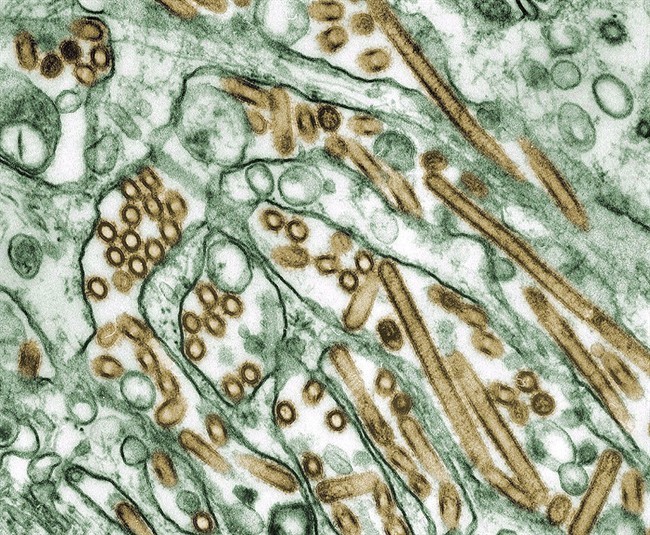Medical health officials say there is no need for alarm after North America’s first fatal case of the H5N1 bird flu.

The Alberta woman died earlier this month after a visit to China, which also included a brief stop at the Vancouver Airport.
The unidentified woman was on an Air Canada flight from Beijing on Dec. 27, 2013. She cleared customs at YVR before continuing to Edmonton. She died in hospital Jan. 3.
Experts stress the case is isolated and say H5N1 is rarely passed from human to human.
READ MORE: What you need to know about avian flu (H5N1)
Provincial Health Officer Dr. Perry Kendall says the person spent about 2.5 hours at Vancouver International Airport on December 27 between 12:30 and 3 p.m. while waiting for a connecting flight.
Kendall says human to human transmission of H5N1 is very rare, and if it happens, it has been confined to close family contacts.
“It is, therefore, extremely unlikely that any passengers or casual airport contacts of this case would have been put at risk,” says Kendall.
The victim’s family is being monitored for any signs of illness, and passengers on both Air Canada flights are also being contacted.
However, there has been a big spike in the number of people stricken by the normal seasonal flu (H1N1) in the past few weeks, leading many to roll up their sleeves and get the flu shot.

While the season is being described as ‘moderate to severe’, thousands of people in Western Canada are facing severe symptoms from the flu virus.
The Fraser Health Region has more than 1,800 people with confirmed cases of the flu.
Health officials say a record 1.4 million doses of the vaccine have been distributed across B.C. and say immunity is only built up after two weeks.
WATCH: Flu kills Okanagan woman.
- B.C. couple sentenced to 15 years for manslaughter in 6-year-old boy’s abuse death
- Man who confronted driver, slashed tire in Abbotsford sought by police
- PoCo mayor says ‘no’ to provincial jump as unite-the-right merger talk rages
- B.C. issues new order to boaters aimed at curbing whirling disease spread




Comments